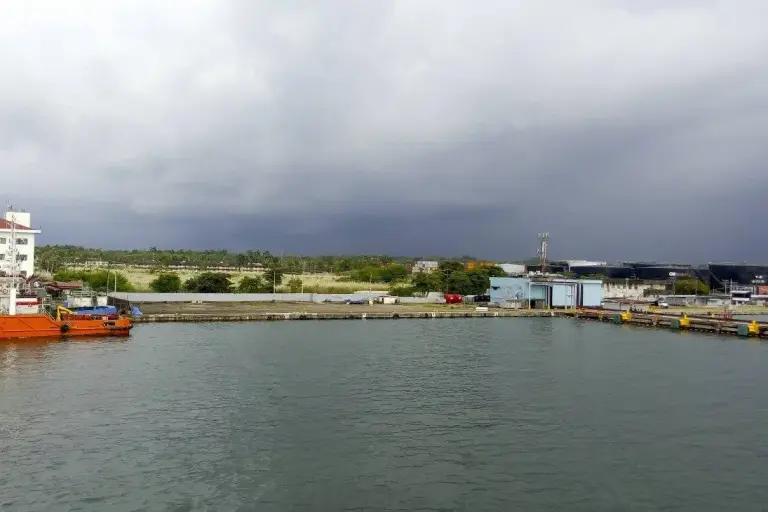PANAMA CITY, Panama – President José Raúl Mulino has ordered the extraordinary expropriation of 41 properties on Margarita Island in Colón Province to facilitate state-led construction of a new port facility at the Atlantic entrance to the Panama Canal. The action, enacted through Executive Decree 90 on October 20, 2025, transfers all lands previously held by Panamá Colón Container Port Inc. (PCCP) to the Panamanian nation, citing urgent social interest.
The decree, signed by President Mulino and Minister of the Presidency Juan Carlos Orillac, was officially published in the Government Gazette. It effectively seizes control of the long-dormant port project site, which had been mired in legal disputes and contractual non-compliance for years. The properties were previously embroiled in litigation and under embargo from a former PCCP partner.
Legal Basis and Immediate State Action
The government is invoking Articles 48 and 51 of the Political Constitution of the Republic of Panama, which empower the Executive Branch to decree the expropriation or occupation of private property for reasons of social interest, provided due compensation is paid. The decree outlines a clear, immediate process for the state to take possession.
“Motives of urgent social interest” justify the measure, according to the official decree, with the objective of allowing the Panamanian State to begin construction of a new port facility at the site. [Translated from Spanish]
The decree mandates several immediate actions. The General Directorate of the Public Registry must make the pertinent annotations and cancel any liens or domain limitations on the properties. The Ministry of Public Security is authorized to guarantee the state’s occupation of the farms. Simultaneously, the Public Ministry is directed to initiate the corresponding judicial process to determine the exact amount of compensation owed to PCCP.
History of Project Failures and Contract Termination
PCCP originally obtained the seabed concession through Contract A-2017-12, signed on May 17, 2013, to develop, operate, and manage a terminal for containers and general cargo. The project, however, was plagued by failures from the outset. The decreto ejecutivo details a history of missed deadlines and financial delinquency.
Earlier this year, in April, the Panama Maritime Authority (AMP) formally rescinded the seabed concession due to PCCP’s failure to adhere to the project schedule and other anomalies. An audit by the Comptroller General during the previous administration of Laurentino Cortizo (2019-2024) had already certified multiple breaches, including significant schedule delays and expired performance bonds. PCCP also accumulated a debt of $1,012,919.17 in unpaid royalties to the AMP.
President Mulino has expressed his dissatisfaction with the management of the concession on several occasions, referring to the PCCP project with a term of derision. [Translated from Spanish]
Although PCCP cited “force majeure” to justify its failure to meet investment obligations—which included a minimum capital of one hundred million dollars—and requested a rescheduling of the timeline, the Panamanian state moved to terminate the contract. The AMP had previously attempted to resolve the situation through resolutions and contractual modifications before opting for termination.
Strategic Location and Historical Context
The expropriated lands on Margarita Island hold significant strategic and historical value. The island was the first U.S. military installation in the former Canal Zone to revert to Panamanian control in 1979 under the Torrijos-Carter Treaties. Its location at the Atlantic entrance to the Canal makes it a prime asset for port development, a fact that underscored the government’s urgency to reclaim the stalled project.
President juan carlos Mulino’s administration has signaled a firm stance on reactivating critical infrastructure projects. The expropriation of the 41 properties represents a decisive step to break the legal and corporate deadlock that has prevented the development of this key maritime terminal for years. PCCP has filed four constitutional appeals (amparos) in an attempt to prevent the AMP from suspending its concession contracts, but the government’s latest move through Executive Decree 90 supersedes these ongoing legal challenges.
The full implementation of the decree now rests with the designated government agencies to physically secure the property, clear its title at the Public Registry, and proceed with the judicial assessment of compensation, paving the way for the state to finally advance the port project on Margarita Island.



